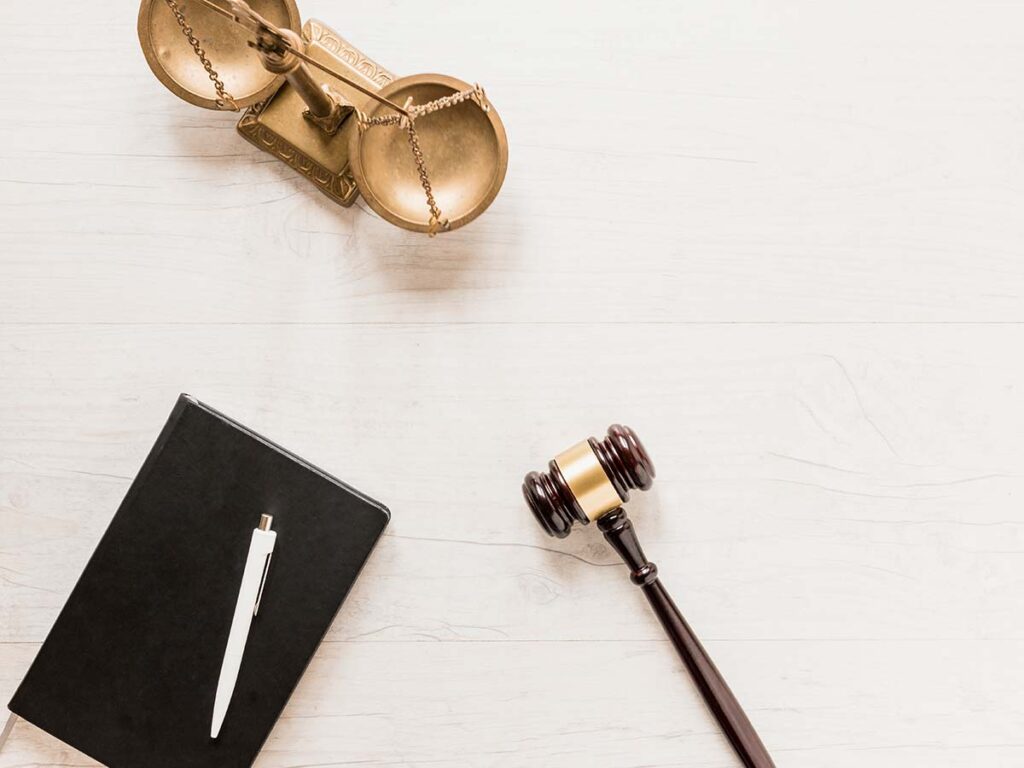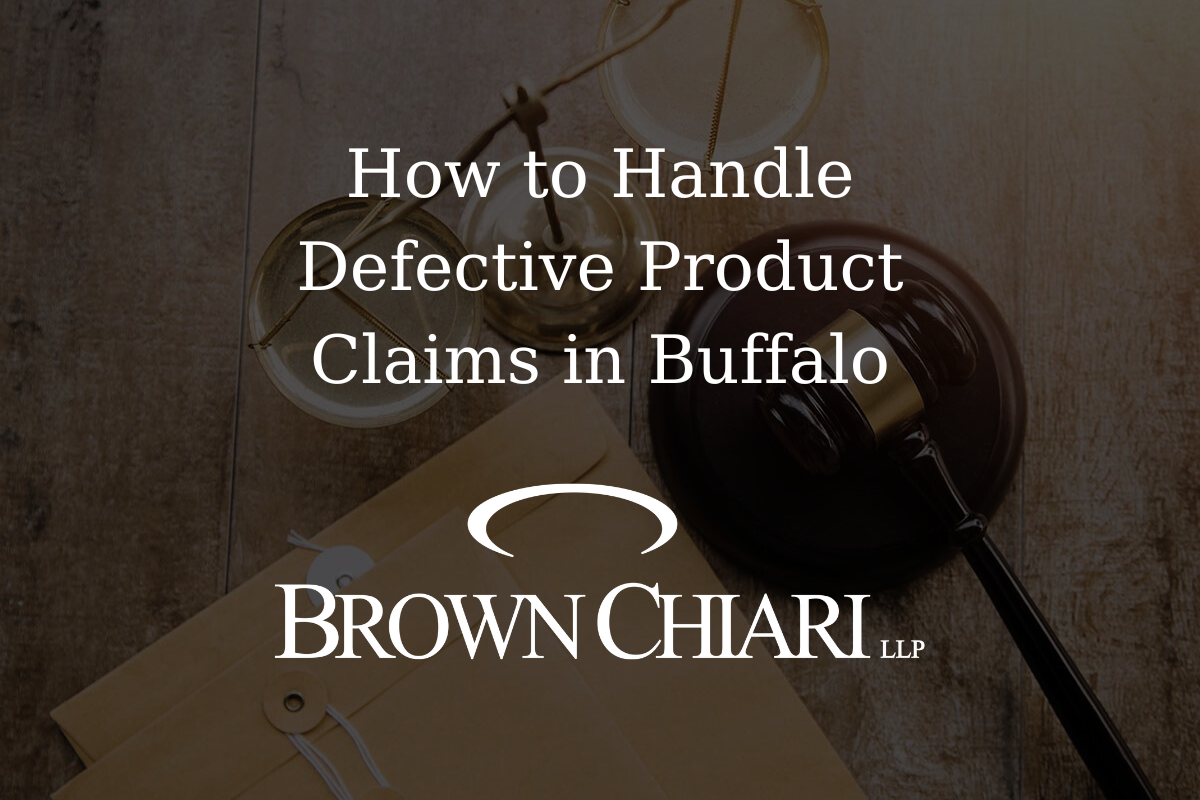When a product fails to function as intended and causes injury, the consequences can be serious—physically, emotionally, and financially. In Buffalo, product liability laws give injury victims the right to hold manufacturers, retailers, or other responsible parties accountable when a defective product causes harm. Whether the injury stems from a faulty design, poor manufacturing, or inadequate warnings, taking the right legal steps is essential.
At Brown Chiari LLP, our Buffalo product liability lawyers help clients understand their rights, navigate the legal process, and pursue compensation for injuries caused by dangerous or defective products. Here’s what you need to know about handling defective product claims in Buffalo, New York.

What Is a Product Liability Claim?
A product liability claim arises when a consumer is injured by a defective product while using it as intended. These claims typically fall under three main categories:
- Manufacturing defects: When the product was designed properly but was assembled incorrectly or damaged during the manufacturing process.
- Design defects: When the product’s original design is inherently unsafe, even when manufactured correctly.
- Marketing defects or failure to warn: When a company fails to provide proper instructions or warning labels about potential risks.
These claims are usually filed under New York’s strict product liability laws, which do not require the injured person to prove negligence—only that the product was defective and caused injury.
Who Can Be Held Liable?
Multiple parties in the supply chain can be held liable in a product liability lawsuit, including:
- The product manufacturer
- A company responsible for faulty design
- A distributor or wholesaler
- A retailer that sold the dangerous product
If the product changed hands several times before reaching the consumer, each of those parties may be subject to liability under New York law.
How to Prove a Defective Product Claim
To succeed in a product liability case in Buffalo, you generally need to prove:
- The product was defective due to a design, manufacturing, or marketing issue
- The product was being used as intended or in a reasonably foreseeable way
- The defect was the proximate cause of your injury
- You suffered actual damages, such as medical bills or lost wages
Your legal team will use evidence like medical documentation, expert testimony, and the product itself to support your case.
Common Products Involved in Claims
Defective product claims can arise from a wide variety of consumer goods and commercial items, such as:
- Medical devices
- Car parts or vehicles
- Household appliances
- Tools and machinery
- Children’s toys or furniture
Any of these products can cause serious injuries if designed or manufactured incorrectly, or if they lack proper warnings.
What Compensation Can You Pursue?
Injured victims may be entitled to compensation for:
- Medical treatment and medical bills
- Lost wages or reduced earning capacity
- Pain and suffering
- Ongoing care or therapy
- Property damage related to the product failure
If a family member was killed due to a defective product, you may also have grounds for a wrongful death claim.
Legal Process and Filing a Claim in Buffalo
The legal process begins by contacting a Buffalo defective product lawyer. After a free initial consultation, your attorney will:
- Investigate the incident
- Gather evidence and interview witnesses
- Identify all at-fault parties
- File a product liability claim or lawsuit
- Negotiate with the insurance company
- Prepare for court, if necessary
New York has a statute of limitations for personal injury cases, including product liability claims. In most cases, you have three years from the date of the injury to file a claim. However, it’s critical to act as soon as possible to preserve evidence and build a strong case.
Strict Liability and Negligence in Product Cases
New York follows the doctrine of strict liability in many defective product cases. This means you don’t need to prove the manufacturer failed to exercise reasonable care. Instead, you must show the product was unreasonably dangerous and caused injury when used as intended.
However, in some situations—especially those involving warranty claims or specific marketing practices—you may also allege negligence, breach of express or implied warranty, or failure to comply with New York product liability law.

Why Legal Representation Matters
Product liability cases are complex and often involve powerful corporations and insurance companies. Having an experienced team of product liability lawyers on your side can make a significant difference in the outcome of your case. Your attorney can assess your claim, navigate New York court procedures, and fight for full and fair compensation.
At Brown Chiari LLP, we have successfully handled product liability claims in Buffalo and throughout Western New York. Whether the issue involves a manufacturing defect, design flaw, or lack of adequate warning, our legal team is ready to pursue justice on your behalf.
Learn more about how to handle defective product claims in Buffalo. Call Brown Chiari LLP at (716) 681-7190 to schedule your free, no-obligation consultation. You can also reach us anytime through our contact page. Let us help you take the first step toward justice and recovery.
FAQs: Defective Product Claims in Buffalo
What should I do if I’m injured by a defective product in Buffalo?
Seek immediate medical attention, preserve the product, take photos, and contact a product liability attorney to discuss your legal options.
Can I sue the manufacturer even if I didn’t buy the product myself?
Yes. In many cases, anyone injured by a defective product—whether they purchased it or not—may have a right to compensation.
What if the product had a warning label?
A warning label does not always protect a company from liability. If the warning was inadequate or unclear, you may still have a valid claim.
How long do I have to file a product liability claim in New York?
Generally, you have three years from the date of injury to file a claim, but acting quickly ensures better preservation of evidence.
Do I need to prove the manufacturer was negligent?
Not necessarily. Under strict product liability, you only need to prove the product was defective and that the defect caused your injuries.
